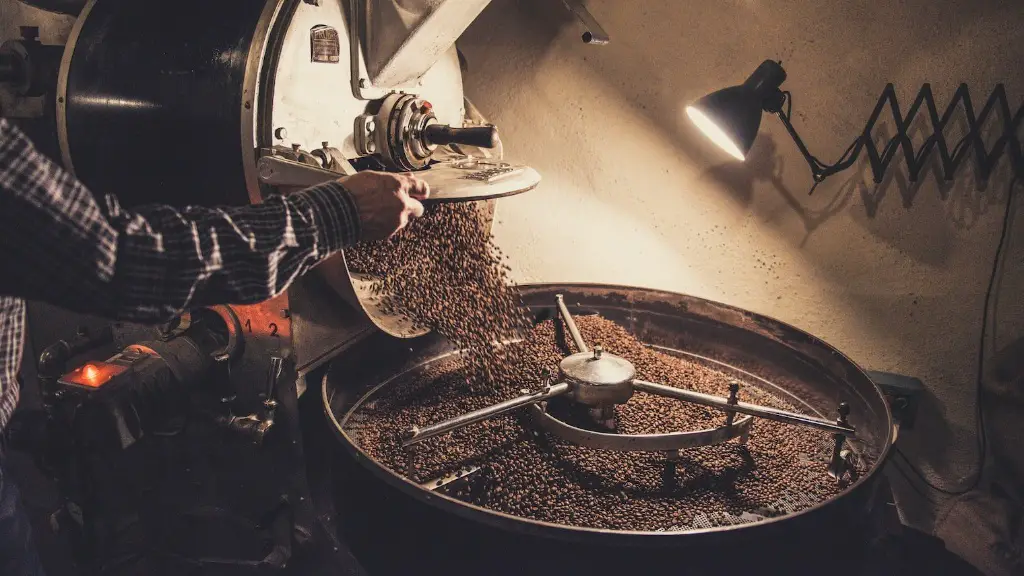Most of us have at least once or twice experienced the high energy that comes with drinking a cup of strong coffee. We feel more energetic and alert. Our focus and attention are sharper. We can take on more tasks without feeling overwhelmed. But is drinking strong coffee bad for our health?
According to the International Coffee Association, coffee is the second most consumed drink in the world after water and it has been consumed for centuries. Coffee is made from the roasted seeds of the coffee plant and it contains caffeine which is a stimulant. It affects our central nervous system providing us with increased alertness, improved concentration and overall feelings of happiness.
When it comes to strong coffee, it contains a higher concentration of caffeine compared to regular coffee. On average, a cup of strong coffee contains between 200 and 300 milligrams of caffeine. While small amounts of caffeine can provide a pick-me-up, drinking too much coffee can lead to negative health effects. Caffeine can cause anxiety, nausea, insomnia, restlessness and digestive problems.
In addition to this, some medical professionals advise that it is recommended to consume no more than 400 milligrams of caffeine per day which is equal to four cups of regular coffee. Therefore, drinking too much strong coffee could cause more intense side effects if not moderated.
Researchers from Mayo Clinic have conducted several studies on the effects of coffee on the body. They found that drinking moderate amounts of coffee, no more than four cups per day, can boost our physical performance, enhance cognitive abilities and reduce the risk of developing certain chronic diseases such as cardiovascular disease, type 2 diabetes and Alzheimer’s. Furthermore, research has revealed that people who consume coffee regularly may be at a lower risk of depression and suicide. A 2017 study suggested that people who drink caffeinated coffee have a lower risk of developing Parkinson’s disease.
Overall, it is generally considered safe to consume a moderate amount of caffeinated coffee. Certainly, the effects of drinking too much strong coffee are not good for our health but with moderation and good hydration habits it can be enjoyed in safety. There is no need to avoid caffeine completely, but we should monitor our consumption.
What are the benefits of drinking strong coffee?
Research has shown that drinking moderate amounts of coffee can provide many benefits for our health. According to Mayo Clinic, studies have linked drinking coffee to a reduced risk of Alzheimer’s disease, type 2 diabetes, cardiovascular disease and even suicide. Furthermore, moderate consumption of caffeinated coffee has also been linked to improved cognitive function, increased physical performance and improved mood.
Coffee is a great source of antioxidants. These compounds protect the body from damage caused by free radicals and reduce inflammation. Other beneficial compounds found in coffee include magnesium, potassium and B vitamins.
In addition to these, drinking coffee can increase serotonin levels in the brain, contributing to improved mood and better sleep. On top of this, research has suggested that drinking caffeinated coffee can also help to reduce stress, which can impact both physical and mental health.
Are there risks associated with drinking strong coffee?
While there are numerous potential benefits to drinking strong coffee, there are also some potential risks. Excessive caffeine consumption has been linked to symptoms such as dizziness, headache, restlessness, palpitations, tremors, insomnia and sleep disruption. Furthermore, too much coffee can cause heartburn, gastrointestinal discomfort, increased anxiety, elevated blood pressure and increased urination.
It is also important to note that drinking too many caffeinated beverages can lead to dependence or addiction. People who develop an addiction to caffeine may suffer from withdrawal symptoms when they stop drinking coffee or other caffeinated beverages. These symptoms can include headache, fatigue, irritability, low energy, difficulty concentrating and depression.
Therefore, it is important to monitor caffeine consumption. Health professionals recommend no more than four cups of regular coffee or two cups of strong coffee per day.
How to reduce the risks of drinking strong coffee
One way to reduce the potential risks associated with drinking strong coffee is through moderation. Health organizations recommend limiting caffeine consumption to 400 milligrams per day, which is equivalent to four cups of regular coffee or two cups of strong coffee. In addition to this, it is important to stay hydrated and consume other beverages, such as water, throughout the day.
Regular coffee contains more caffeine than decaffeinated coffee, but the two can still be enjoyed in moderation. Decaffeinated coffee is a great option for those looking to reduce their caffeine intake but still enjoy the taste of coffee. Furthermore, some coffee makers allow you to choose the strength of your coffee, making it easier to control caffeine intake.
It is also important to note that coffee beans can vary in their caffeine content. Darker roasts tend to have less caffeine than lighter roasts, with espresso and Turkish coffee having the highest caffeine content. If you are looking to reduce your caffeine intake, opt for lighter roasts.
Are there alternatives to drinking strong coffee?
While moderate amounts of strong coffee can be beneficial for our health, there are also some alternatives. Energy drinks such as Red Bull, Monster, and Rockstar contain high levels of caffeine and they can provide a boost of energy. However, these drinks also contain large amounts of sugar, which can be detrimental to health.
There are also many caffeine-free alternatives that can provide a boost of energy. For example, some herbal teas, such as green and black tea, guarana and guayusa can provide a mild stimulation without the side effects of caffeine. Furthermore, there are also some natural energy sources such as dark chocolate, nuts and seeds which can provide sustainable energy throughout the day.
How does drinking strong coffee compare to drinking regular coffee?
The strength and taste of coffee varies depending on the type of bean and the method of preparation. Generally, strong coffee has a higher caffeine content and a more intense flavor than regular coffee. On average, a cup of strong coffee contains between 200 and 300 milligrams of caffeine, while a cup of regular coffee contains between 90 and 150 milligrams.
When it comes to preparation, regular coffee is made using grounded beans and is brewed for a longer period of time. Strong coffee, meanwhile, is usually made using a finer grind and a shorter brewing time. The preparation of strong coffee also requires more coffee grounds compared to regular coffee.
In terms of taste, strong coffee is usually more acidic and full-bodied than regular coffee. It is important to note that strong coffee can be unpleasant for some. Therefore, if you are looking for a stronger flavor without the potential side effects of caffeine, a lighter roast may be a better option.
Conclusion
Overall, consuming a moderate amount of caffeinated coffee can be beneficial for our health. However, it is important to note that too much strong coffee can have negative side effects. Therefore, it is important to monitor caffeine consumption and stay hydrated. Furthermore, there are many alternatives to drinking strong coffee that can provide the same benefits without the potential risks. Therefore, strong coffee can be enjoyed safely and responsibly.





